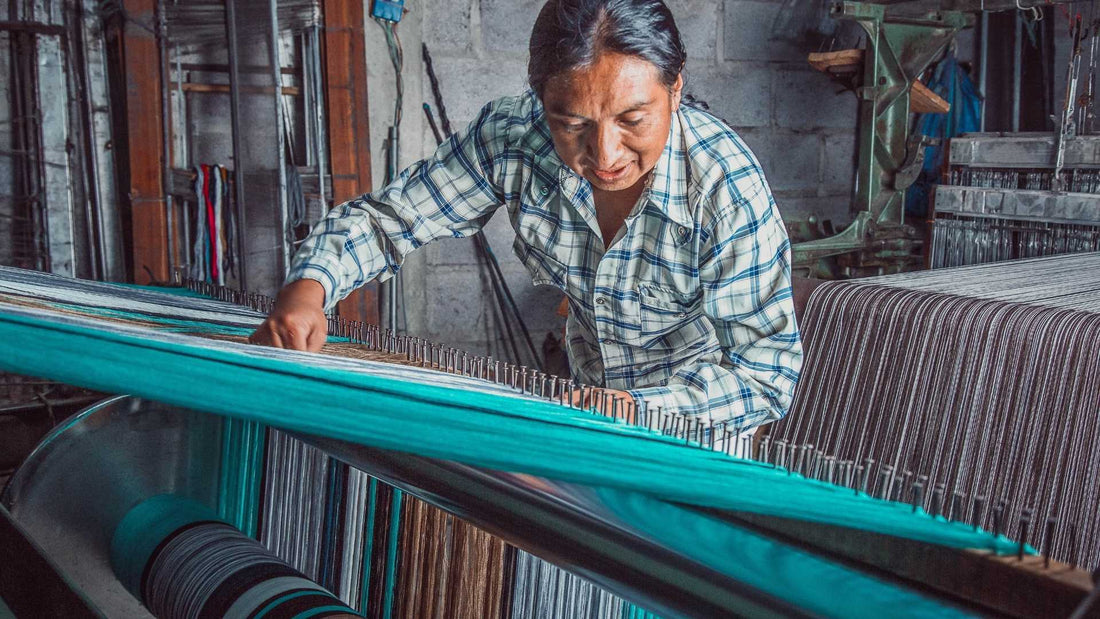
Using Community to Build a Fair trade Business #1: Ecuadorian Artisan Partners Story
Share
To celebrate Fair Trade Month, we’re bringing you a series of blogs this October highlighting the fair trade relationships between Pokoloko founders, Jess + Case, and our artisan communities around the world.
Today, we invite you into the home of our artisan partners in Ecuador!

Pokoloko: A Fair Trade Company
First, let’s bring you up to speed on what being a Fair Trade company means to us.
Fair Trading is the agreement made between an exporter and its suppliers, which ensures labourers are compensated fairly for the work that they do. In our case, we at Pokoloko are the exporters, and the artisans we work with are our suppliers.
We understand the economic importance artisans have in their own communities, and the ways in which their work impacts yours. Without the locally sourced materials of our artisans or the knowledge they bring in traditional technique and style, the beautiful little luxuries you love so much would be impossible to sell.
By engaging in fair trade practices, we have been fortunate to work with these small, tight-knit communities to build our own local Canadian business.
And through cultivated personal relationships with these artisans, co-founders Jess + Case have even been welcomed as friends into some of their homes.
Take a look below to find the first, in a series, of 4 fair-trade artisan relationships Pokoloko is proud to highlight in having worked with over the years.
Jess + Case’s Fair Trade Relationship with Ecuadorian Artisans
1. Tell me about the artisans. How did you all meet?
Case: In Ecuador, we work with a young couple, as well as their small team of family and friends. They live nestled in the Northern Andes Mountains.
Jess: Our relationship with the couple dates back to 2013, when Case first met them traveling on a trip through South America.
Case: Although this would soon come to change, the family, at that time, was living in their father’s house in a small, rural, Ecuadorian mountain village. Being just a few years older than us, the couple decided they wanted to expand their family and gave birth to two young children not long after we first started working together.

2. And the artisan's dad taught him the business?
Jess:Yes, it was actually the artisan's father who taught him the art of pedal-powered and mechanical weaving. With yarn, they use this technique to create weaves of complex color combinations. By feeding the color combinations through various stages of production, he is able to weave beautiful, soft-to-the-touch pieces like our Alpaca Throw.
3. How are the artisans using Fair Trade to invest in their own growth?
Case: The artisans are natural business people, and as Jess and I kept bringing back orders for more blankets, wraps, and scarves, they were able, step-by-step, to buy their own land. It’s actually located not far from their old family home.
Jess: With that land, they built a house for their family, as well as a small-scale workshop with 2 machines in the backyard.
Case: Over the years, we have seen them thrive, and expand their backyard workshop to a bigger space with more machines, which they own themselves.
Jess: In an effort to support our textile workers in creating their own sustainable and economically viable business, Pokoloko has given these artisans micro-loans to help them fund new machines; an investment which can be quite costly.
4. You guys can now call yourselves a part of the family!
Jess: Yes! Case was very happily made the godfather of their youngest child. We attended celebrations and countless family gatherings, weddings, and other traditions with their community of friends.
Case: As Quechua Indigenous Ecuadorians, the artisans' textile traditions date back generations. But they live amongst a community full of art and artisans of all kinds- from leather makers to jewellers- using Tagua (a local nut similar to coconuts), textiles and more.
Jess: While both of them speak Spanish. as well as their native Quechua, they’ve certainly picked up a few English words from Case and I, here and there.
5. How is Fair Trade providing them a good quality of life?
Jess: The artisans' quality of life is great. With the opportunities provided to them via the success of their fair trade business, the young couple are able to get proper medical attention for their family; their children are able to go to school, they are able to work a little less so they have more time to cook proper meals for their family and staff, etc.
Case: By means of our fair trade deal, the artisans are able to provide for their family’s social and economic needs self-sustainably.

Fair Trade Value Deserves Compensation
As movements like the slow fashion revolution, and fair trading, are encouraging us to move away from capitalist business ideals, one thing we can all at least agree on is that value deserves compensation. And compensation allows our artisan partners a more equitable and sustainable way of life.
By providing an ethical supply chain through fair trade relationships, Pokoloko is able to help improve the social and environmental standards of each of our artisan communities, like those of our friends in Ecuador!
Ecuadorian Artisans' Fair Trade Collection
Want to get your hands on one of the artisans' handmade textiles for your ethical home lifestyle? Check out our collection of Ecuadorian fair trade little luxuries!

